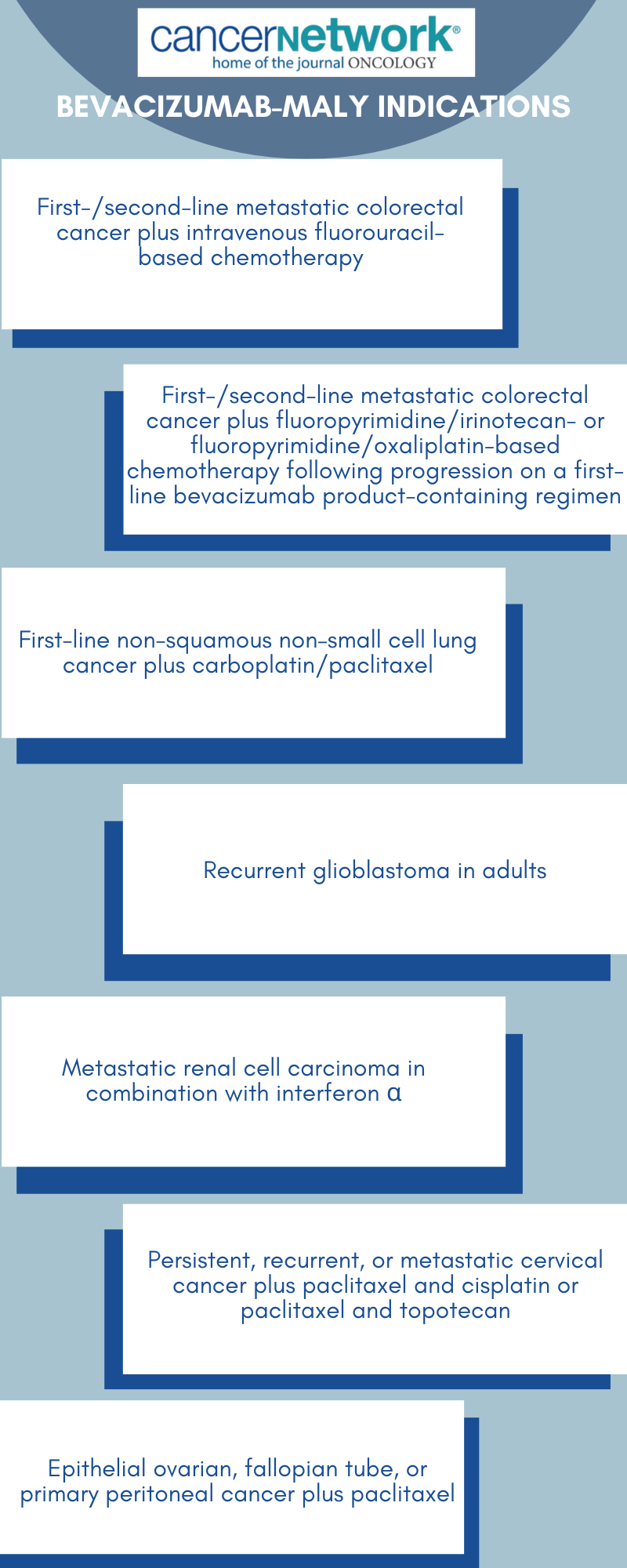Third Bevacizumab Biosimilar, Bevacizumab-Maly, Approved by FDA Across Various Cancer Indications
Bevacizumab-maly was approved by the FDA across numerous cancer indications, becoming the third FDA-approved bevacizumab biosimilar.
The FDA has approved the second bevacizumab (Avastin) biosimilar, bevacizumab-maly (Alymsys), across a variety of cancer indications, according to a press release from Amneal Pharmaceuticals.1,2
The approval of the VEGF inhibitor is the second of 3 approvals that developer Amneal expects in 2022.
“With the U.S. approval of our second biosimilar, [bevacizumab-maly] we are continuing our momentum and establishing our presence in the $28 billion U.S. biosimilars market. By combining partner assets with our own key capabilities, we are on a clear path to becoming a meaningful player in this high growth category. Biosimilars represent the next wave of affordable medicines in the U.S. and are closely aligned with our strategy to provide high quality, affordable medicines to as many patients as possible,” Chirag Patel and Chintu Patel, co-chief executive officers at Amneal Pharmaceuticals, said in a press release.
Bevacizumab-maly can be used across many tumor types, including the following:
Indications for bevacizumab biosimilar bevacizumab-maly.

The biosimilar has several warnings and precautions for several toxicities, including severe and fatal hemorrhage; arterial and venous thromboembolic events; hypertension, hypertensive crisis, and hypertensive encephalopathy; renal injury, proteinuria, and nephrotic syndrome; posterior reversible encephalopathy syndrome; embryo-fetal toxicity; ovarian failure; congestive heart failure; gastrointestinal perforations and fistula; and surgery/wound healing complications and infusion-related reactions. Additionally, treatment-related adverse effects for bevacizumab-maly include epistaxis, hemorrhage, hypertension, exfoliative dermatitis, proteinuria, back pain, headache, rhinitis, taste alteration, dry skin, and lacrimation disorder.
“Through our strategic partnership with a market leader like Amneal, we are excited to see this important product enter the U.S. biosimilar market. For us, this is a great example of our globalization strategy materializing and how innovation and cutting-edge R&D technology can be applied to create high quality, affordable medicines that improve access to critical treatments,” Emmanuelle Lepine, chief executive officer at mAbxience, concluded.
References
- Amneal achieves second U.S. biosimilars approval with ALYMSYS® (bevacizumab-maly). News release. April 13, 2022. Accessed April 19, 2022. https://bit.ly/3vrn67n
- FDA approves Alymsys® (bevacizumab-maly), a biosimilar of bevacizumab by Amneal Pharmaceuticals, Inc., developed by mAbxience. News release. April 18, 2022. Accessed April 19, 2022. https://prn.to/3jXmVeA
How Supportive Care Methods Can Improve Oncology Outcomes
Experts discussed supportive care and why it should be integrated into standard oncology care.